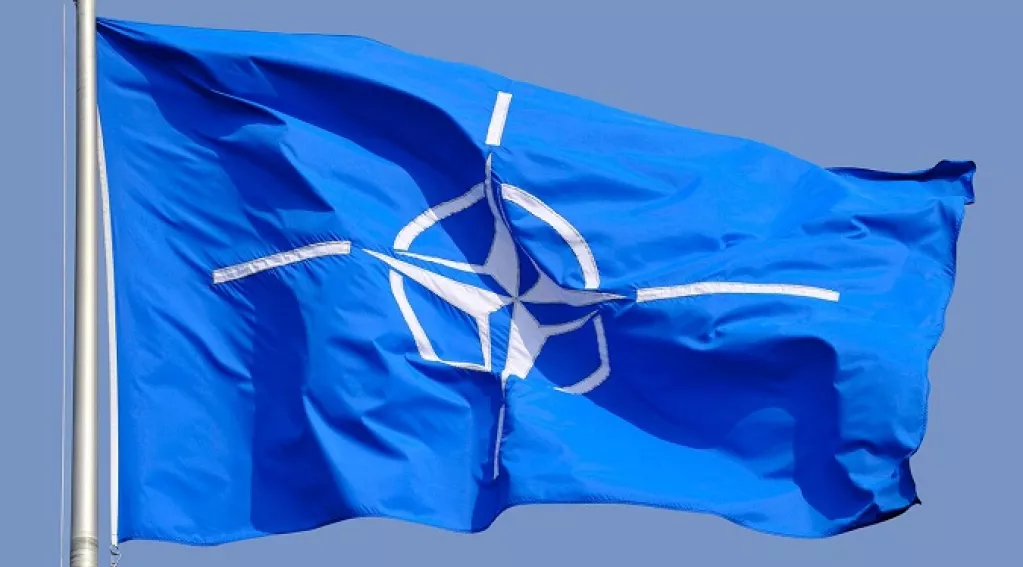Mass Illegal Migration Undermines NATO And Helps Its Enemies

Recent data showed 1.7 million apprehensions (“encounters”) at our southwestern border during Fiscal Year 2021, a historically record-breaking number. And our border crisis is showing no signs of abating, nor does the Biden administration seem particularly worried about it.
Meanwhile, Middle Eastern illegal migrants – invited and weaponized by the post-Soviet dictator of Belarus, Alexander Lukashenko, are rushing Poland’s eastern border. Vice President Kamala Harris described Lukashenko’s actions as “very troubling,” and the European Union “is asking its executive branch, the European Commission, to create legal arrangements to allow the EU to finance border walls and other immediate measures in response to what they said is a hybrid attack from Belarus.”
Migrants continue to arrive in southern Europe via the Mediterranean Sea, Bulgaria is sending troops to its border with Turkey to deal with increasing illegal migration, and Ankara is expanding its border wall on the Turkish-Iranian frontier. Mass illegal migration is thus a crisis that is impacting most of the countries belonging to the North Atlantic Treaty Organization (NATO) and, as such, benefits the main adversaries of the United States and its Western allies, chiefly Russia and communist China.
NATO was established in 1949, in the wake of the Second World War, to keep the Soviet empire from swallowing up Western Europe – or, as the alliance’s first secretary-general Lord Ismaystated, “to keep the Russians out, the Americans in, and the Germans down.”Following the collapse of the Soviet Union, NATO remains the chief Western defense alliance, and an aggressively resurgent Russia under Vladimir Putin further highlighted the organization’s continued relevance, as does China’s growing economic and military power. However, the pressure of mass illegal migration –be it on our own southern border, in the Mediterranean basin, or on NATO’seastern flank – is having a negative impact on both the power of NATO, and on many of its constituent member states.
Mass illegal migration – on both sides of the Atlantic – brings with it increased crime, and, particularly in Europe in the wake of the 2015 migrant wave, also more sexual assaults. It undermines national cohesion, exacerbates political polarization, and increases various ethnic, cultural, and religious tensions, all while putting a significant strain on local resources, budgets, and social safety nets. Moreover, mass migration flows attract infiltration by terrorists and other anti-Western extremists. Everyone, except perhaps open-borders ideologues, can see that these pathologies have a weakening, harmful effect on societies and countries. Simply “getting in more people” is hardly a way to keep the NATO alliance and its member states internationally competitive economically or militarily.
In terms of the global struggle for hearts and minds, mass illegal migration is also a lose-lose situation for the West. Quite a few liberal Western leaders – for example, JoeBiden now, or Angela Merkel in 2015 – seem to believe that tolerating massive levels of unlawful border crossings, or simply opening up the gates, makes them and their countries look “humane” and wins them the so-called moral high ground. Of course, both prospective migrants and anti-Western regimes view suchnaïve policies quite differently: as signs of weakness, decadence, and gullibility. And when NATO countries decide to get tough about border security – be it President Trump, or currently, the governments of Poland and Lithuania –propagandists in places like Moscow, Beijing, or Tehran spin it as Western“cruelty” (never mind that those countries are quite harsh when policing their own borders!), as do many domestic leftists and liberals.
But one way or another, our geopolitical adversaries are more than happy to see mass illegal migration weakening and destabilizing NATO countries. There is a reason why Belarus’spro-Russian dictator is pushing migrants to push across NATO’s eastern borders– while threatening to cut off Europe’s gas supplies as winter approaches – and it’s not to help the migrants themselves, but to punish Europe. All of this makes clear that immigration is not only a domestic policy issue, but also one impacting international politics, national security, and the future of the Western alliance.

